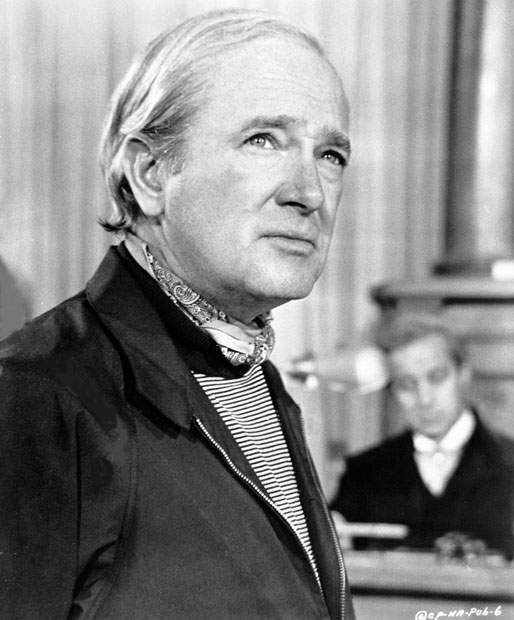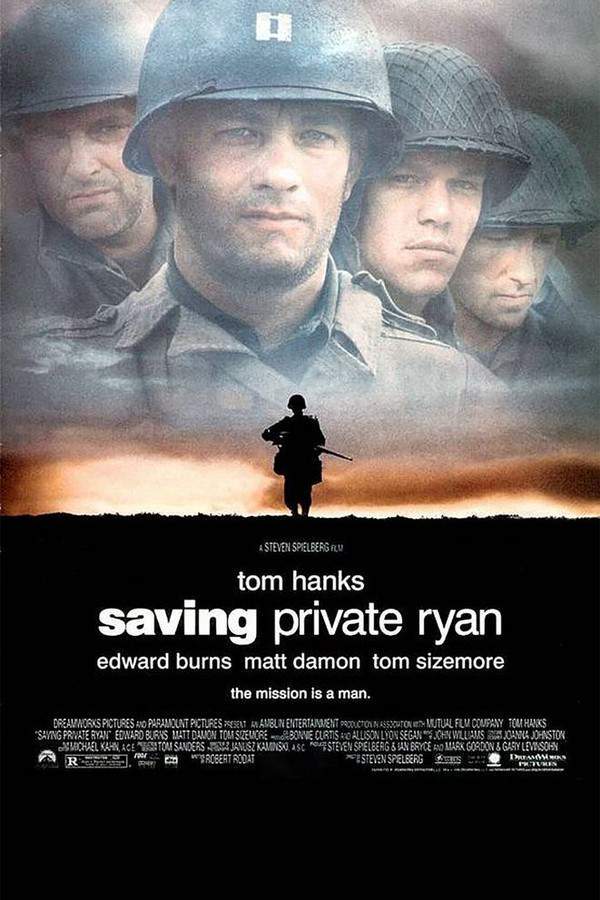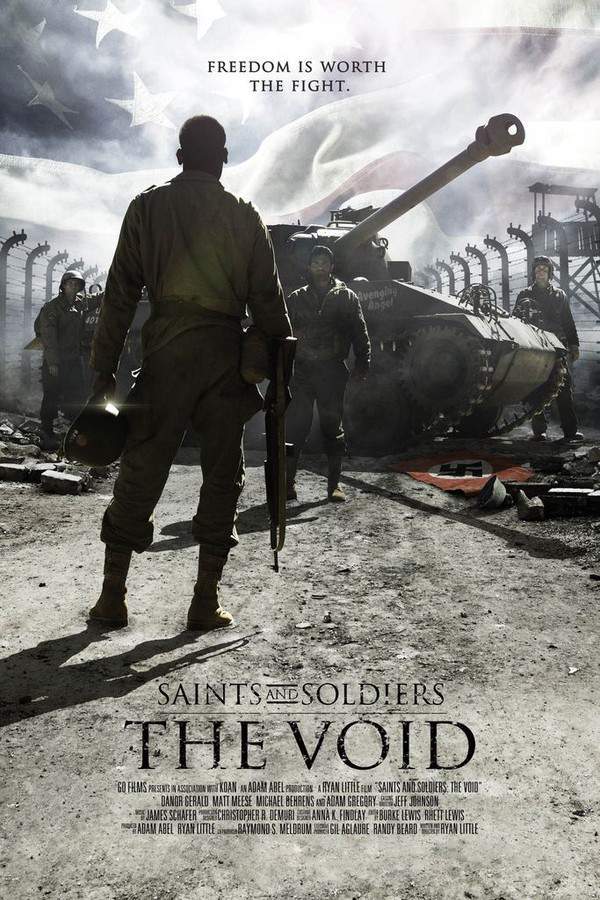
Patton 1970
Directed by

Franklin J. Schaffner
Test your knowledge of Patton with our quiz!
Patton Plot Summary
Read the complete plot summary and ending explained for Patton (1970). From turning points to emotional moments, uncover what really happened and why it matters.
Against a backdrop of the Stars and Stripes, General George S. Patton (portrayed by George C. Scott) stands before his troops on the eve of battle, delivering a powerful address. His uniform is pristine, adorned with countless medals, and his demeanor shifts from stern to jovial, and even to profanity, reflecting his complex personality. Patton expresses his conviction that war, in all its chaos, is the most profound reflection of the human spirit.
Set in North Africa, 1942, the Americans face a devastating defeat against Rommel’s Africa Corps during their initial encounter. Following this loss, General Omar Bradley (played by Karl Malden) realizes the necessity of bringing in the best tank commander available. Patton swiftly answers the call, arriving amidst blaring sirens and swirling dust, catching the soldiers off guard—an error they won’t repeat. He believes that the troops’ lax attitude is the root of their failure and diligently sets about restoring order and discipline. With unwavering self-confidence, Patton imposes his steadfast philosophy on his men, commanding them with an iron will. Recognizing the tactical prowess of his enemy, he immerses himself in studying Rommel’s strategies.
Meanwhile, the Germans are also evaluating Patton’s growing reputation. They scrutinize his peculiar habits and character traits, recognizing him as a romantic who reads the Bible daily, curses fervently, and has a belief in reincarnation. When asked about Patton, Rommel’s chilling response is, > “I will attack and annihilate him… before he does the same to me.”
As the Germans launch an offensive against American positions in Tunisia, Patton, perched in the hills, assesses Rommel’s plans with keen interest. His foresight leads to an American victory, further inflating his already substantial ego. With both Patton and British commander Field Marshal Montgomery (portrayed by Michael Bates) commanding respect and contention, their rivalry intensifies as the African campaign nears its end. Patton, eager to implement his invasion plan through Sicily, becomes outraged when Montgomery’s strategy is adopted instead.
Once Sicily is invaded, Montgomery’s troops battle fiercely against German forces while Patton, originally assigned to aid Montgomery, decides to chart his own course. Ignoring orders, he pushes forward, first capturing Palermo and then racing towards Messina, prioritizing speed over the welfare of his men, which engenders dissatisfaction among his commanders wary of unnecessary American casualties.
Ultimately, Montgomery’s forces claim Messina amid celebration, only to be confronted by Patton, who has arrived ahead of them. With a self-satisfied grin, he stands ready to greet the victorious British commander, showcasing his ambition.
As the Italian campaign progresses, Patton’s controversial decisions begin to overshadow his initial successes. During a routine visit to a field hospital, he encounters a shell-shocked soldier exhibiting signs of extreme stress. Misinterpreting this as cowardice, Patton erupts in anger, slapping the man and sending him back to the front lines. This incident leads to his first significant fallout, resulting in a reprimand and a forced apology, a bitter pill for such a proud general to swallow.
With the war still ongoing, Patton is summoned to England in preparation for D-Day, only to discover his reputation has made him a liability to the delicate alliance Eisenhower is attempting to maintain. Ordered to remain silent and avoid trouble, he struggles with the possibility that he might miss the grand battle for which he has longed. Following the invasion, he meets General Bradley again, who cautiously offers him a chance at redemption. Seizing the opportunity, Patton swiftly propels the American forces through France, gaining ground faster than any other Allied unit.
As Christmas approaches, the Germans unleash a fierce counterattack during the Battle of the Bulge, surrounding American troops. Only a miracle can save them, and Patton vows to deliver. He marches his men with urgency and arrives just in time to relieve the besieged forces, once again capturing the spotlight. With victory in sight, Patton becomes increasingly despondent at the looming end of the war and the loss of purpose. His penchant for speaking out lands him in trouble again when he offends the Russians, ultimately leading to his removal from command by Eisenhower.
Having established himself as one of the most formidable leaders of World War II, Patton now faces an uncertain future in a world moving beyond him. Reflecting upon his experiences, he muses, > “For over a thousand years, Roman conquerors returning from the wars enjoyed the honor of a triumph - a tumultuous parade. The conqueror rode in a triumphal chariot, the dazed prisoners walking in chains before him. Sometimes his children, robed in white, stood with him in the chariot, or rode the trace horses. A slave stood behind the conqueror, holding a golden crown, and whispering in his ear a warning: that all glory is fleeting.”
Patton Timeline
Follow the complete movie timeline of Patton (1970) with every major event in chronological order. Great for understanding complex plots and story progression.
General Patton's Pre-Battle Address
As a backdrop of the Stars and Stripes waves, General George S. Patton delivers a stirring address to his troops just before a critical battle. His dynamic personality shines through as he moves from stern to jovial tones, reflecting his belief that war is the ultimate test of the human spirit.
Defeat in North Africa
The American forces face a devastating defeat against Rommel's Africa Corps in North Africa. This loss prompts General Omar Bradley to recognize the urgent need for a skilled commander to turn the tides of battle.
Patton Takes Command
General Patton arrives at the battlefield amidst blaring sirens, startling the soldiers with his commanding presence. Concerned about the troops' lax attitude, he begins to instill discipline and order, believing it to be the key to success.
Study of Rommel's Strategies
Recognizing Rommel's tactical brilliance, Patton immerses himself in studying the enemy's strategies. This preparation showcases Patton's willingness to learn and adapt, demonstrating his respect for the enemy's capabilities.
Rommel's Response to Patton
As the German forces analyze Patton's growing reputation, Rommel chillingly vows to eliminate Patton before he can do the same. This sentiment highlights the threats both generals present to each other in the unfolding conflict.
Victory in Tunisia
Patton's keen assessments lead to an important American victory as the Germans launch an offensive in Tunisia. His triumph further swells his ego, cementing his status as a bold and formidable commander.
Rivalry with Montgomery
As the African campaign nears its conclusion, the rivalry between Patton and British Field Marshal Montgomery becomes intense. Patton is infuriated when Montgomery's strategy is chosen over his own for the next phase of the campaign.
Invasion of Sicily
After the invasion of Sicily, tensions rise as Patton, initially tasked with supporting Montgomery, decides to lead his troops independently. His aggressive push for Palermo and Messina stirs dissatisfaction among his commanders.
Controversial Actions at Field Hospital
During a visit to a field hospital, Patton encounters a soldier who is displaying signs of PTSD. Misinterpreting the soldier's condition as cowardice, Patton reacts violently, resulting in public outcry and a significant reprimand.
Summoned to England for D-Day
Patton is summoned to England in preparation for D-Day, but quickly learns that his aggressive reputation has made him a liability. Under orders to stay silent, he wrestles with the frustration of potentially missing the pivotal battle.
Rapid Advance Through France
After a meeting with General Bradley, Patton is given a chance at redemption and leads American forces swiftly through France. His tactics gain ground faster than any other Allied unit, showcasing his strategic prowess.
The Battle of the Bulge
As Christmas approaches, the Germans launch a fierce counterattack during the Battle of the Bulge, surrounding American troops in a dire situation. Patton vows to lead his men to deliver a miracle and relieve the beleaguered forces.
Patton's Trouble with Allies
Following the war’s progress, Patton's outspoken nature results in tensions with the Soviets, ultimately leading to his removal from command by Eisenhower. His refusal to conform to the political landscape highlights the challenges of leadership during wartime.
Patton's Reflection on Glory
Looking back on his storied military career, Patton reflects on the fleeting nature of glory and triumph. His contemplative statement about Roman conquerors emphasizes his awareness of the transient nature of fame and success.
Patton Characters
Explore all characters from Patton (1970). Get detailed profiles with their roles, arcs, and key relationships explained.
George S. Patton (George C. Scott)
General George S. Patton is a fierce and charismatic military leader whose complex personality influences both his decisions and those of his troops. He is marked by his intense ambition and belief in reincarnation, which shapes his philosophical outlook on war. Patton's actions often reflect a mix of inspiration and controversy, as seen when he confronts cowards instead of caring for his men’s well-being.
Omar Bradley (Karl Malden)
General Omar Bradley serves as a balancing force to Patton's aggressive tactics. He is practical and cautious, tasked with managing the fallout from Patton’s bold maneuvers. Bradley's loyalty and rationality provide a counterpoint to Patton's brashness, and he often represents the voice of reason amid chaos.
Patton Settings
Learn where and when Patton (1970) takes place. Explore the film’s settings, era, and how they shape the narrative.
Time period
1942-1945
The movie unfolds during the height of World War II, a time characterized by massive military confrontations and shifting alliances. This period was marked by key battles, strategic maneuvers, and the struggle for dominance in Europe and North Africa. It encapsulates the intense military atmosphere and the psychological toll it took on leaders and soldiers.
Location
North Africa, Sicily, Tunisia
The film primarily takes place in North Africa during World War II, where American forces engage Rommel's Africa Corps. Notable locations like Sicily come into play as Patton takes an aggressive stance, aiming to seize victory and advance through Italian territory. These regions are pivotal in the campaign against Axis powers, highlighting both strategic importance and the harsh realities of war.
Patton Themes
Discover the main themes in Patton (1970). Analyze the deeper meanings, emotional layers, and social commentary behind the film.
⚔️
War
The theme of war is central to the film, illustrating the chaos, glory, and brutality that accompany it. General Patton's complex view of warfare as a reflection of the human spirit showcases both the nobility and the horrors of battle. The film brings to light the duality of a soldier’s role, as both a leader and a participant in relentless conflict.
🦁
Leadership
Patton embodies a distinct form of leadership that combines audacity with rigorous discipline. His iron will and unshakable self-confidence drive his men to achieve greatness but also lead to conflicts and misjudgments. The theme explores the burdens of leadership during wartime and the vulnerabilities that accompany great ambition.
💣
Conflict
Conflict arises not only on the battlefield but within Patton himself and among his allies. His rivalry with Montgomery exemplifies the tensions that can exist within military partnerships. The brutal realities of war also serve to challenge soldiers' morals and philosophies, making conflict a multifaceted aspect of the narrative.

Coming soon on iOS and Android
The Plot Explained Mobile App
From blockbusters to hidden gems — dive into movie stories anytime, anywhere. Save your favorites, discover plots faster, and never miss a twist again.
Sign up to be the first to know when we launch. Your email stays private — always.
Patton Spoiler-Free Summary
Discover the spoiler-free summary of Patton (1970). Get a concise overview without any spoilers.
In the turbulent summer of the early 1940s, the world is engulfed in a conflict that reshapes nations and tests the limits of human resolve. The film opens against a backdrop of marching troops, fluttering Stars and Stripes, and the ever‑present hum of artillery, establishing a tone that is both grandiose and intimate. The atmosphere is charged with the weight of history, yet it never feels distant—every uniform, every command post feels lived‑in, hinting at the personal dramas that will unfold beneath the sweep of battle.
At its core stands George S. Patton, a larger‑than‑life general whose brilliance on the battlefield is matched only by the firestorm of his personality. He is a man of stark contradictions: a scholar of military theory who reads the Bible daily, a charismatic leader who can inspire fierce loyalty, and a blunt, profanity‑spouting officer whose confidence borders on hubris. His presence dominates every scene, his speeches crackle with intensity, and his relentless drive to impose order and excellence creates both admiration and unease among those who follow him.
The story also introduces a small cadre of equally formidable contemporaries—Omar Bradley, the steady tactician who recognizes the need for raw talent; Field Marshal Montgomery, the British commander whose methodical approach often collides with Patton’s impulsiveness; and Rommel, the cunning adversary whose reputation looms over the Allied plans. Their interactions are a study in clash and camaraderie, each embodying a different philosophy of war and leadership. Through these relationships, the film paints a portrait of a world where strategic brilliance and personal ambition are inseparable, and where the line between heroism and controversy is perpetually blurred.
Against this rich tapestry of war, honor, and ego, the narrative promises a compelling exploration of what it means to lead in an era where victory is measured not just in territory but in the indelible imprint one leaves on history. The tone remains immersive and relentless, inviting the audience to question how far a man can push his convictions before they become his own undoing.
Can’t find your movie? Request a summary here.
Movies with Similar Twists and Themes
Uncover films that echo the narrative beats, emotional arcs, or dramatic twists of the one you're exploring. These recommendations are handpicked based on story depth, thematic resonance, and spoiler-worthy moments — perfect for fans who crave more of the same intrigue.
Featured on this page

What's After the Movie?
Not sure whether to stay after the credits? Find out!
Explore Our Movie Platform
New Movie Releases (2026)
Famous Movie Actors
Top Film Production Studios
Movie Plot Summaries & Endings
Major Movie Awards & Winners
Best Concert Films & Music Documentaries
Movie Collections and Curated Lists
© 2026 What's After the Movie. All rights reserved.












